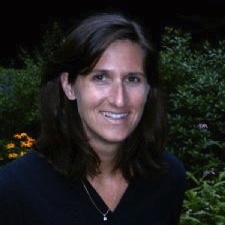I was in a bookstore and walked by a recent issue of Harvard Business Review. A tease on the cover, “Are You Too Collaborative?,” caught my attention. I went into panic mode. Could I be too collaborative? Is there such a thing? Needless to say, I bought the magazine and started reading it right away.
Guilty.
I knew as soon as I started the article “Collaboration Without Burnout” by Rob Cross, Scott Taylor, and Deb Zehner that I was one of those leaders the article was referencing. They wrote, “As we gain experience, we often tend to take on more work and our identities start to become intertwined with accomplishment, helping, or being in the know.” I realized I am too collaborative. I stay in all projects from beginning to end. I overextend commitments to too many groups. I do so at the cost of not always staying true to my strengths or area of need. Why? I think for me it goes to the fact that my identity has become intertwined with accomplishment, helping, and a desire to be in the know. The danger of being overly collaborative is overload and burnout.
The article defines effective collaborators as “people who work productively with a wide variety of others but use the least amount of their own and colleagues’ time.” This makes sense. I love this definition, because it puts into perspective that it’s not just about my time but also about the time of others. It forced me to ask myself whether I am taking too much of others’ time.
The authors suggest you reflect on your beliefs, role, schedules, network, and behaviors. I use a layered approach to coaching and reflect annually on the layers of my job. The layers keep me grounded and aligned to my work, and there is no place for ego in this role as literacy leader.
.jpg)
This visual serves as my “north star.” It keeps me focused and aligned to the work of the schools, the district, and my role. The emphasis on the various layers shifts each year as new and veteran staff members move around within schools and new initiatives are implemented. The key will be for me to revisit my layers throughout the year to ensure that I am staying the course and not taking on new initiatives that distract from the overall plan.
Say No
I know that saying yes to any new initiative means saying no to another. I don’t need to be involved in everything. I am starting to take baby steps to practice what I intutively know. I just said no to being part of a first-grade interview team. The interview team was a strong one that contained a mix of teachers, administrators, and specialists. I trust their hiring judgment. It was a first step to saying no.
Know Your Strengths
One of my strengths is in the area of intermediate literacy. This was another reason I chose to not be part of the interview team looking for a first-grade teacher. Early literacy is not my strength.
Maximize Time
As I move forward this upcoming year, I will be more aware of how I am using my time and the time of others. I usually meet with new teachers every week during one of their planning periods. There is no sense in meeting just to meet. Meetings should be relevant and purposeful to those involved. This year I will take the extra step and ask if the teacher needs and/or wants the meeting, recognizing that some weeks they may just need the time for themselves.
Cultivate Other Teacher Leaders
Each study group that I facilitate has a teacher cofacilitator. I need to work on leaning on them more and including them more in the planning process for study groups but also letting go and including them more in sketching out the agenda. I don’t need to plan all of the meetings or even all of the meetings with them. I know that some of the teacher leaders are eager to take these next steps and do some planning of the agendas on their own.
Carve Out Time for Collaboration with Other Literacy Leaders
I will continue to carve out time every month to meet with another literacy leader in the area. Shelly, a coach in a neighboring community, feeds me. I help her by sharing professional books for study group offerings, and she helps me by keeping me up to date on the latest children’s books and use of technology. We have different strengths and areas of interest, but together we maximize learning about the latest resources.
Reflection Throughout the Year
I will also make sure that I take time to reflect on my layers throughout the year to ensure that I am staying the course for meaningful work.
I am humbled from learning that there is such a thing as being too collaborative. I have taken the time to reflect on myself as a literacy leader . . . my strengths and weaknesses, areas of expertise, and shortcomings. As I look ahead to a new year, I have plans. I am hopeful that with a slight readjustment, I will be able to be a more effective collaborator and maximize my role as an effective literacy leader.


